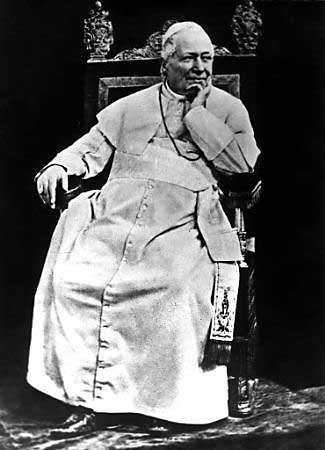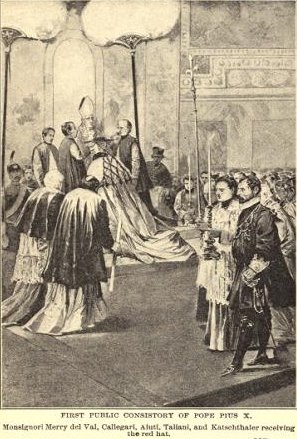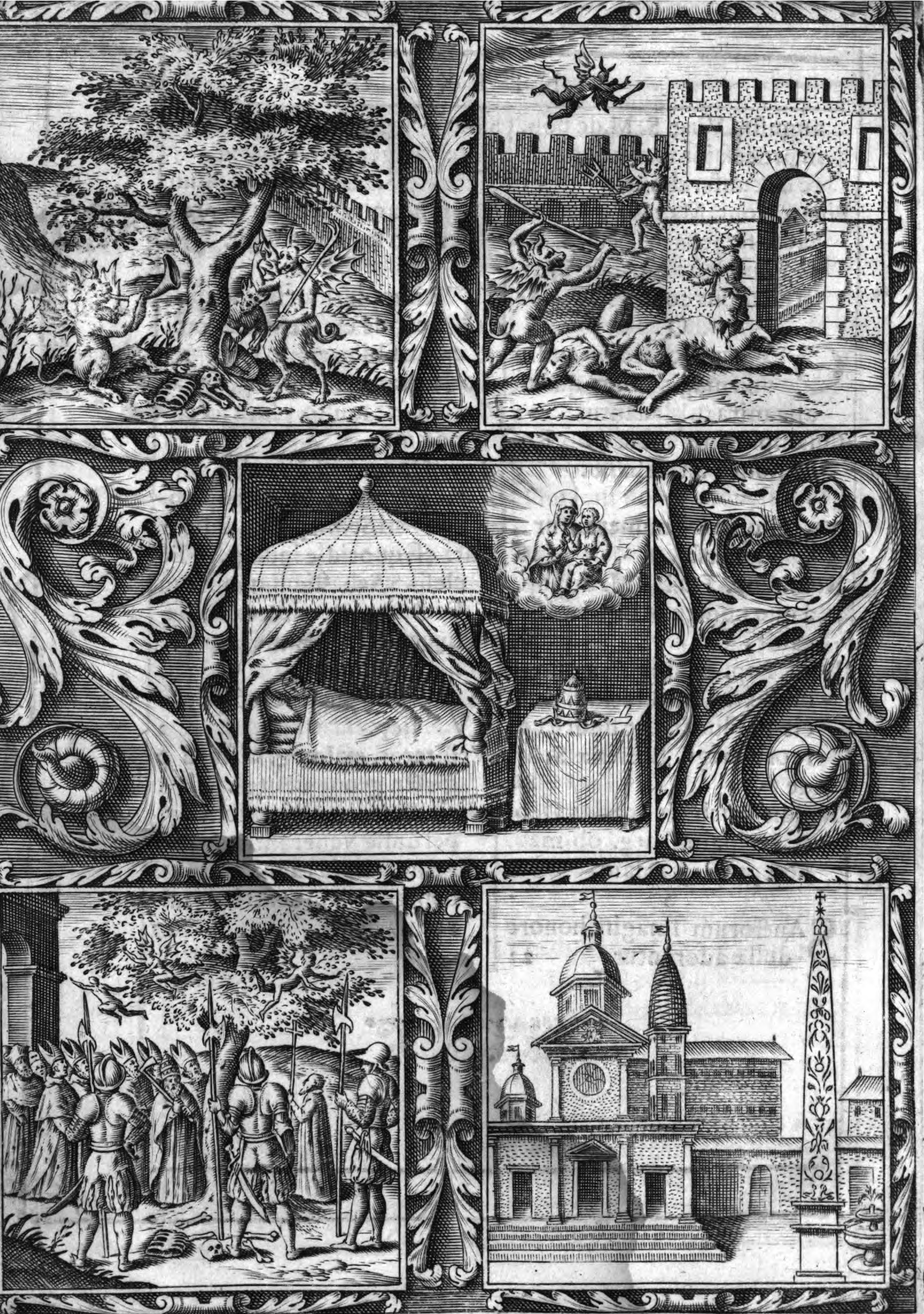|
Carlo Sacconi
Carlo Sacconi J.U.D. (9 May 1808 – 25 February 1889) was a Cardinal of the Roman Catholic Church and Dean of the College of Cardinals. Carlo Sacconi was born in Montalto. He was educated at the seminary of Fermo and later at La Sapienza University, Rome, where he earned a ''doctorate utriusque iuris'' (in both canon and civil law). Priesthood He was ordained and worked in the diocese of Montalto as a professor in its seminary in 1829 and pro-vicar general for the diocese. He worked with the Congregation of the Tridentine Council for three years. He served as Auditor in the nunciature to the Kingdom of Sardinia in 1839 and chargé d'affaires ad interim in January 1844. He served as chargé d'affaires in the Grand Duchy of Tuscany from 1845 to 1847 and was Internuncio to the Kingdom of Bavaria from 1847-1851. Episcopate He was appointed titular archbishop of Nicaea on 27 May 1851 by Pope Pius IX and was named full nuncio to Bavaria on 6 June 1851. Cardinalate He wa ... [...More Info...] [...Related Items...] OR: [Wikipedia] [Google] [Baidu] |
Prefect Of The Congregation Of Ceremonies
The Sacred Congregation of Ceremonies was a dicastery of the Roman Curia that was charged with the direction of all papal ceremonies as well as of the ceremonial of cardinals. History and functions The congregation was established by Pope Sixtus V. It also communicated instructions to the legates of the Holy See for the maintenance of due decorum in transacting the affairs of their missions. This congregation also instructed the members of the Noble Guard and the ablegate who were sent to convey to new cardinals, living in Catholic states outside of Rome, the news of their promotion, together with the cardinal's hat and the red biretta. It instructed newly promoted cardinals, too, on the etiquette to be followed conformably with their new dignity. Finally, it solved the questions of precedence which arose among cardinals or among ambassadors to the Holy See. It was dissolved in 1967 in the Curial reforms by Pope Paul VI. Prefects since 1884 *Carlo Sacconi (28 Mar 1884 – 2 ... [...More Info...] [...Related Items...] OR: [Wikipedia] [Google] [Baidu] |
Chargé D'affaires
A ''chargé d'affaires'' (), plural ''chargés d'affaires'', often shortened to ''chargé'' (French) and sometimes in colloquial English to ''charge-D'', is a diplomat who serves as an embassy's chief of mission in the absence of the ambassador. The term is French for "charged with business", meaning they are responsible for the duties of an ambassador. ''Chargé'' is masculine in gender; the feminine form is ''chargée d'affaires''. A ''chargé'' enjoys the same privileges and immunities as an ambassador under international law, and normally these extend to their aides too. However, ''chargés d'affaires'' are outranked by ambassadors and have lower precedence at formal diplomatic events. In most cases, a diplomat serves as a ''chargé d'affaires'' on a temporary basis in the absence of the ambassador. In unusual situations, in cases where disputes between the two countries make it impossible or undesirable to send agents of a higher diplomatic rank, a ''chargé d'affaires'' ... [...More Info...] [...Related Items...] OR: [Wikipedia] [Google] [Baidu] |
Pope Leo XIII
Pope Leo XIII ( it, Leone XIII; born Vincenzo Gioacchino Raffaele Luigi Pecci; 2 March 1810 – 20 July 1903) was the head of the Catholic Church from 20 February 1878 to his death in July 1903. Living until the age of 93, he was the second-oldest-serving pope, and the third-longest-lived pope in history, before Pope Benedict XVI as Pope emeritus, and had the List of popes by length of reign, fourth-longest reign of any, behind those of Saint Peter, St. Peter, Pius IX (his immediate predecessor) and John Paul II. He is well known for his intellectualism and his attempts to define the position of the Catholic Church with regard to modern thinking. In his famous 1891 Papal encyclical, encyclical ''Rerum novarum'', Pope Leo outlined the rights of workers to a fair wage, safe working conditions, and the formation of trade unions, while affirming the rights of property and free enterprise, opposing both socialism and laissez-faire capitalism. With that encyclical, he became popularly ... [...More Info...] [...Related Items...] OR: [Wikipedia] [Google] [Baidu] |
Papal Conclave, 1878
The 1878 papal conclave, which resulted from the death of Pope Pius IX on 7 February 1878, met from 18 to 20 February. The conclave followed the longest reign of any other pope since Saint Peter. It was the first election of a pope who would not rule the Papal States. It was the first to meet in the Apostolic Palace in the Vatican because the venue used earlier in the 19th century, the Quirinal Palace, was now the palace of the King of Italy, Umberto I. Questions facing the cardinals When the cardinals assembled, they faced a dilemma. Should they choose a pope who would continue to espouse Pius IX's reactionary religious and political views, and would continue to refuse to accept Italy's ''Law of Guarantees'' guaranteeing the pope religious liberty in the Kingdom of Italy? Or should they turn away from the policies of Pius IX and choose a more liberal pope who could work for reconciliation with the King of Italy? Would choosing such a policy be seen as a betrayal of Pius IX, t ... [...More Info...] [...Related Items...] OR: [Wikipedia] [Google] [Baidu] |
First Vatican Council
The First Ecumenical Council of the Vatican, commonly known as the First Vatican Council or Vatican I was convoked by Pope Pius IX on 29 June 1868, after a period of planning and preparation that began on 6 December 1864. This, the twentieth ecumenical council of the Catholic Church, held three centuries after the Council of Trent, opened on 8 December 1869 and was adjourned on 20 October 1870 after the revolutionary Capture of Rome. Unlike the five earlier general councils held in Rome, which met in the Lateran Basilica and are known as Lateran councils, it met in Saint Peter's Basilica in the Vatican, hence its name. Its best-known decision is its definition of papal infallibility. The council was convoked to respond to the rising influence of rationalism, anarchism, communism, socialism, liberalism, materialism, and pantheism. Its purpose was, besides this, to define the Catholic doctrine concerning the Church of Christ. There was discussion and approval of only two constit ... [...More Info...] [...Related Items...] OR: [Wikipedia] [Google] [Baidu] |
Congregation For The Evangelization Of Peoples
A congregation is a large gathering of people, often for the purpose of worship. Congregation may also refer to: * Church (congregation), a Christian organization meeting in a particular place for worship *Congregation (Roman Curia), an administrative body of the Catholic Church ** Congregation for Bishops **Congregation for the Causes of Saints **Sacred Congregation of Rites *Religious congregation, a religious institute of the Catholic Church in which simple vows are taken *Congregation (group of houses), a subdivision of some religious institutes in the Catholic Church *Qahal, an Israelite organizational structure often translated as ''congregation'' * Congregation (university), an assembly of senior members of a university * The general audience in a ward in The Church of Jesus Christ of Latter-day Saints Music * The Congregation (band), an English pop group, sold in the US and Canada as The English Congregation * ''Congregation'' (The Afghan Whigs album) **"Congregation", ... [...More Info...] [...Related Items...] OR: [Wikipedia] [Google] [Baidu] |
Papal Consistory
In the Roman Catholic Church a consistory is a formal meeting of the College of Cardinals called by the pope. There are two kinds of consistories, extraordinary and ordinary. An "extraordinary" consistory is held to allow the pope to consult with the entire membership of the College of Cardinals. An "ordinary" consistory is ceremonial in nature and attended by cardinals resident in Rome. For example, the pope elevates new cardinals to the College at a consistory; Pope Francis has called consistories for ceremonies of canonization. A meeting of the College of Cardinals to elect a new pope is not a consistory, but a conclave. History The term ''consistory'' comes from the la, con-sistere; "stand together".''Papal Consistory'' by Kevin Knight (Catholic Encyclopedia, 2009) Early popes conferred with their Roman presbytery which included ... [...More Info...] [...Related Items...] OR: [Wikipedia] [Google] [Baidu] |
Santa Maria Del Popolo
it, Basilica Parrocchiale Santa Maria del Popolo , image = 20140803 Basilica of Santa Maria del Popolo Rome 0191.jpg , caption = The church from Piazza del Popolo , coordinates = , image_size = 270 , mapframe-frame-width = 270 , mapframe = yes , mapframe-caption = Click on the map for a fullscreen view , mapframe-zoom = 13 , mapframe-marker = religious-christian , mapframe-wikidata = yes , location = Rome , country = Italy , denomination = Catholic , tradition = Latin Church , religious order = Order of Saint Augustine , website = , founded date = 1099 , founder = Pope Paschal II , dedication = Blessed Virgin Mary , consecrated date = 1477 , status = Basilica minor, parish church (1561), titular church (1587) , functional status ... [...More Info...] [...Related Items...] OR: [Wikipedia] [Google] [Baidu] |
Apostolic Nuncio To Bavaria
Apostolic may refer to: The Apostles An Apostle meaning one sent on a mission: *The Twelve Apostles of Jesus, or something related to them, such as the Church of the Holy Apostles *Apostolic succession, the doctrine connecting the Christian Church to the original Twelve Apostles *The Apostolic Fathers, the earliest generation of post-Biblical Christian writers *The Apostolic Age, the period of Christian history when Jesus' apostles were living *The '' Apostolic Constitutions'', part of the Ante-Nicene Fathers collection Specific to the Roman Catholic Church *Apostolic Administrator, appointed by the Pope to an apostolic administration or a diocese without a bishop *Apostolic Camera, or "Apostolic Chamber", former department of finance for Papal administration * Apostolic constitution, a public decree issued by the Pope *Apostolic Palace, the residence of the Pope in Vatican City *Apostolic prefect, the head of a mission of the Roman Catholic Church *The Apostolic See, sometimes us ... [...More Info...] [...Related Items...] OR: [Wikipedia] [Google] [Baidu] |
Pope Pius IX
Pope Pius IX ( it, Pio IX, ''Pio Nono''; born Giovanni Maria Mastai Ferretti; 13 May 1792 – 7 February 1878) was head of the Catholic Church from 1846 to 1878, the longest verified papal reign. He was notable for convoking the First Vatican Council in 1868 and for permanently losing control of the Papal States in 1870 to the Kingdom of Italy. Thereafter he refused to leave Vatican City, declaring himself a " prisoner of the Vatican". At the time of his election, he was seen as a champion of liberalism and reform, but the Revolutions of 1848 decisively reversed his policies. Upon the assassination of his Prime Minister Rossi, Pius escaped Rome and excommunicated all participants in the short-lived Roman Republic. After its suppression by the French army and his return in 1850, his policies and doctrinal pronouncements became increasingly conservative, seeking to stem the revolutionary tide. In his 1849 encyclical '' Ubi primum'', he emphasized Mary's role in salvation. In 1 ... [...More Info...] [...Related Items...] OR: [Wikipedia] [Google] [Baidu] |
Nicaea
Nicaea, also known as Nicea or Nikaia (; ; grc-gre, Νίκαια, ) was an ancient Greek city in Bithynia, where located in northwestern Anatolia and is primarily known as the site of the First and Second Councils of Nicaea (the first and seventh Ecumenical councils in the early history of the Christian Church), the Nicene Creed (which comes from the First Council), and as the capital city of the Empire of Nicaea following the Fourth Crusade in 1204, until the recapture of Constantinople by the Byzantines in 1261. The ancient city is located within the modern Turkish city of İznik (whose modern name derives from Nicaea's), and is situated in a fertile basin at the eastern end of Lake Ascanius, bounded by ranges of hills to the north and south. It is situated with its west wall rising from the lake itself, providing both protection from siege from that direction, as well as a source of supplies which would be difficult to cut off. The lake is large enough that it could not be ... [...More Info...] [...Related Items...] OR: [Wikipedia] [Google] [Baidu] |
Titular Archbishop
A titular bishop in various churches is a bishop who is not in charge of a diocese. By definition, a bishop is an "overseer" of a community of the faithful, so when a priest is ordained a bishop, the tradition of the Catholic, Eastern Orthodox and Oriental Orthodox churches is that he be ordained for a specific place. There are more bishops than there are functioning dioceses. Therefore, a priest appointed not to head a diocese as its diocesan bishop but to be an auxiliary bishop, a papal diplomat, or an official of the Roman Curia is appointed to a titular see. Catholic Church In the Catholic Church, a titular bishop is a bishop who is not in charge of a diocese. Examples of bishops belonging to this category are coadjutor bishops, auxiliary bishops, bishops emeriti, vicars apostolic, nuncios, superiors of departments in the Roman Curia, and cardinal bishops of suburbicarian dioceses (since they are not in charge of the suburbicarian dioceses). Most titular bishops h ... [...More Info...] [...Related Items...] OR: [Wikipedia] [Google] [Baidu] |







.jpg)